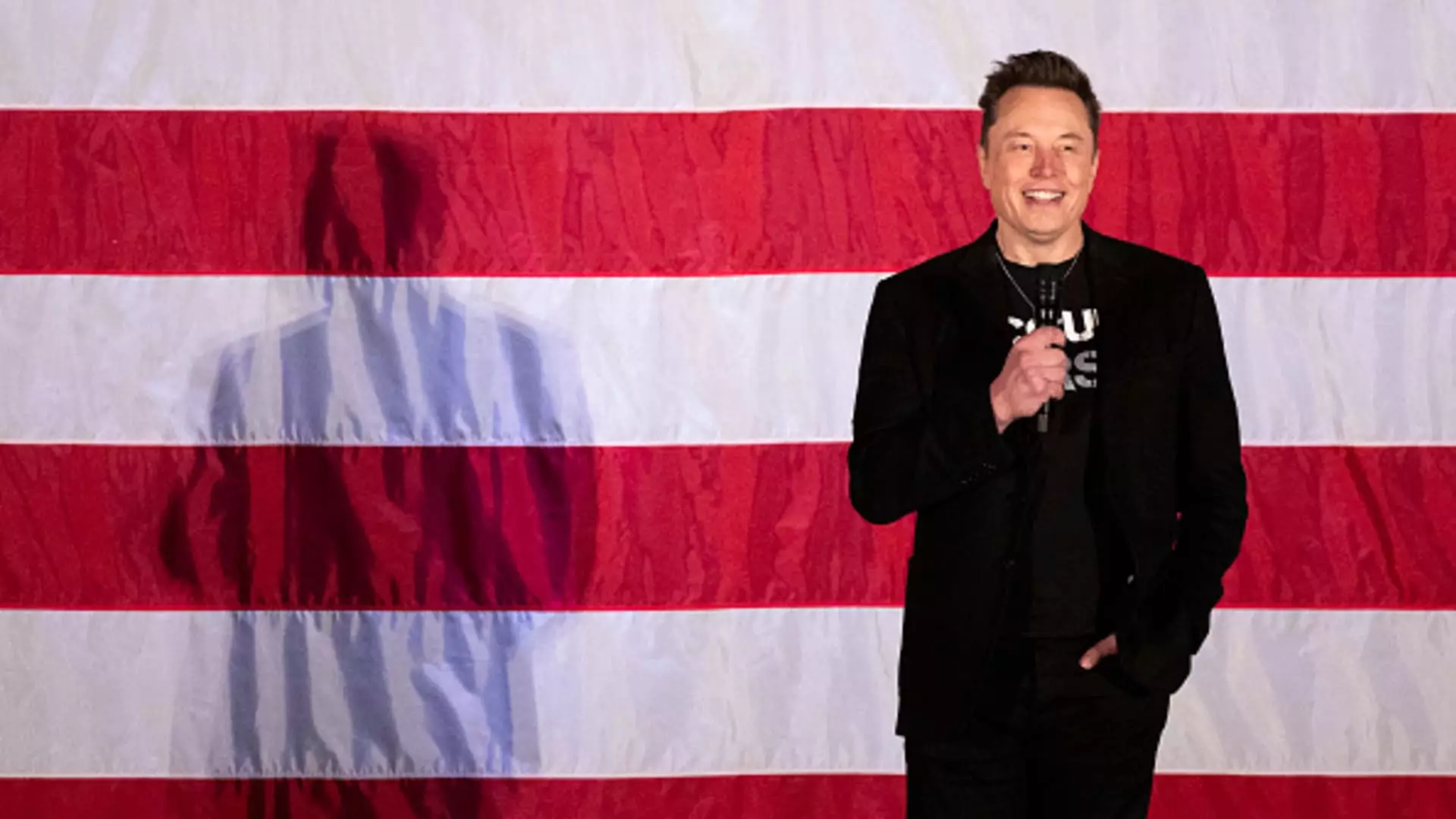The recent legal skirmishes surrounding Elon Musk and his affiliated political action committee (PAC), America PAC, have ignited a firestorm of controversy that highlights the ongoing tensions between political influence and lawful electoral practices. The Philadelphia District Attorney’s Office has set the stage for a legal battle, filing a lawsuit to halt what they describe as an “illegal lottery” designed to sway votes in pivotal swing states. As this legal saga unfolds, we delve into the implications of Musk’s actions and what they mean for election ethics.
At the heart of the lawsuit filed by District Attorney Larry Krasner is the assertion that Musk’s initiative to award $1 million to registered voters who share personal information and support for the Constitution constitutes a lottery. Krasner’s lawsuit underscores the serious nature of these allegations, claiming that the initiative is not merely a benign publicity stunt but rather a strategic attempt to manipulate voter engagement through monetary inducement. The lawsuit purports that this practice could mislead citizens into surrendering their personal data under the guise of participating in a legitimate political process.
The judicial system’s involvement in this saga raises essential questions about the distinction between engaging voters through innovative means and subverting the democratic process. By soliciting personal identifying information for a monetary incentive, America PAC might be traversing legal boundaries that aim to ensure fair election practices. Moreover, the lawsuit emphasizes existing Pennsylvania law that necessitates state-regulated lotteries and consumer protection laws designed to shield citizens from deceptive practices.
The Political Landscape: Trump and Musk’s Complicated Alliance
The backdrop of this legal dispute is further complicated by the political affiliations of Elon Musk and his endorsement of Donald Trump in the upcoming presidential race against Democratic candidate Kamala Harris. The collaboration between a high-profile tech entrepreneur and the former president draws media attention and public scrutiny, amplifying the stakes surrounding election integrity. By leveraging his vast wealth and substantial public platform, Musk risks conceiving an environment where money can unduly influence political preferences.
The complexities of influencing a diverse electorate in swing states highlight the broader dilemma of the modern political landscape: the intersection of wealth, technology, and democratic engagement. Although Musk’s supporters may frame his actions as mere engagement strategies, critics argue that they encroach upon established constitutional norms, which are foundational to fair electoral processes.
The U.S. Department of Justice (DOJ) has already signaled their concerns regarding America PAC’s grand $1 million giveaway, which poses potential violations of federal election laws. This underscores the seriousness of the accusations as government entities take proactive measures to safeguard electoral integrity. DA Krasner’s statement accentuates the responsibility of his office to act as a bulwark against actions that undermine public trust in elections.
Critics of Musk’s initiative have voiced their concerns that these forms of financial incentives could breed skepticism among voters, eroding confidence in the electoral system. In a landscape where disinformation proliferates, any semblance of impropriety can have far-reaching implications, including further disenfranchising already marginalized voter groups.
Public reactions to Musk’s initiative have been mixed, reflecting the broader polarization of contemporary politics. Articulating this divide, President Joe Biden quipped about the financial giveaway but subsequently labeled it “totally inappropriate.” The tension in his comments underscores the controversial nature of Musk’s approach, as this form of political engagement walks a precarious line between creativity and legality.
As stakeholders from various sectors—the government, the electorate, and civil rights organizations—scrutinize this twist in U.S. electoral politics, one thing becomes clear: the conversation surrounding the intersection of wealth, politics, and fairness in elections needs to evolve.
The unfolding lawsuit against Elon Musk and America PAC sheds light on a critical juncture in U.S. electoral politics. By challenging initiatives that seem to commodify citizen engagement, authorities aim to uphold the integrity of the democratic process. As the situation continues to develop, it serves as a catalyst for broader discussions about ethics, the role of money in politics, and the need for comprehensive regulations to protect voters. Ultimately, the resolution of this legal battle may shape how future campaigns approach voter engagement—and whether financial incentives will find a place within the democratic landscape.


Leave a Reply